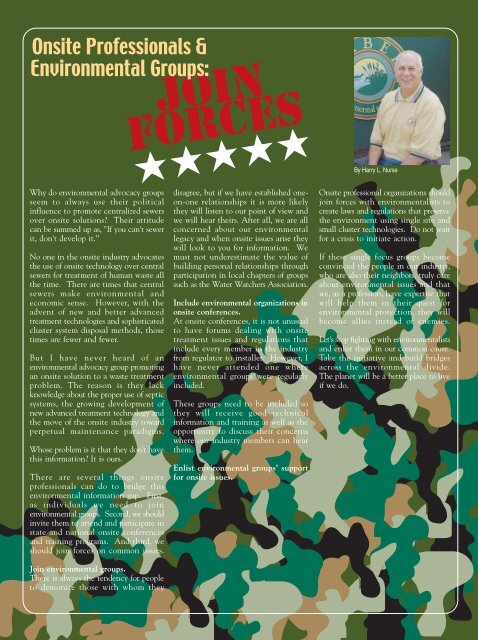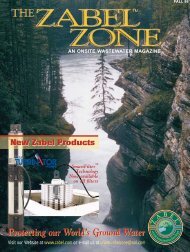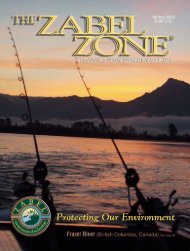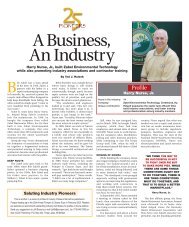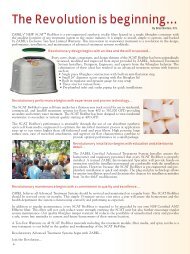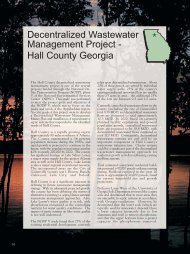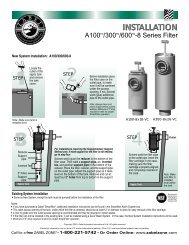PDF file / 3.43 MB - Zabel
PDF file / 3.43 MB - Zabel
PDF file / 3.43 MB - Zabel
Create successful ePaper yourself
Turn your PDF publications into a flip-book with our unique Google optimized e-Paper software.
By Harry L. NurseWhy do environmental advocacy groupsseem to always use their politicalinfluence to promote centralized sewersover onsite solutions? Their attitudecan be summed up as, "If you can't sewerit, don't develop it.”No one in the onsite industry advocatesthe use of onsite technology over centralsewers for treatment of human waste allthe time. There are times that centralsewers make environmental andeconomic sense. However, with theadvent of new and better advancedtreatment technologies and sophisticatedcluster system disposal methods, thosetimes are fewer and fewer.But I have never heard of anenvironmental advocacy group promotingan onsite solution to a waste treatmentproblem. The reason is they lackknowledge about the proper use of septicsystems, the growing development ofnew advanced treatment technology andthe move of the onsite industry towardperpetual maintenance paradigms.Whose problem is it that they don't havethis information? It is ours.There are several things onsiteprofessionals can do to bridge thisenvironmental information gap. First,as individuals we need to joinenvironmental groups. Second, we shouldinvite them to attend and participate instate and national onsite conferencesand training programs. And third, weshould join forces on common issues.Join environmental groups.There is always the tendency for peopleto demonize those with whom theydisagree, but if we have established oneon-onerelationships it is more likelythey will listen to our point of view andwe will hear theirs. After all, we are allconcerned about our environmentallegacy and when onsite issues arise theywill look to you for information. Wemust not underestimate the value ofbuilding personal relationships throughparticipation in local chapters of groupssuch as the Water Watchers Association.Include environmental organizations inonsite conferences.At onsite conferences, it is not unusualto have forums dealing with onsitetreatment issues and regulations thatinclude every member in the industryfrom regulator to installer. However, Ihave never attended one whereenvironmental groups were regularlyincluded.These groups need to be included sothey will receive good technicalinformation and training as well as theopportunity to discuss their concernswhere our industry members can hearthem.Enlist environmental groups’ supportfor onsite issues.Onsite professional organizations shouldjoin forces with environmentalists tocreate laws and regulations that preservethe environment using single site andsmall cluster technologies. Do not waitfor a crisis to initiate action.If these single focus groups becomeconvinced the people in our industry,who are also their neighbors, truly careabout environmental issues and thatwe, as a profession, have expertise thatwill help them in their quest forenvironmental protection, they willbecome allies instead of enemies.Let's stop fighting with environmentalistsand enlist them in our common cause.Take the initiative and build bridgesacross the environmental divide.The planet will be a better place to liveif we do.37 27


